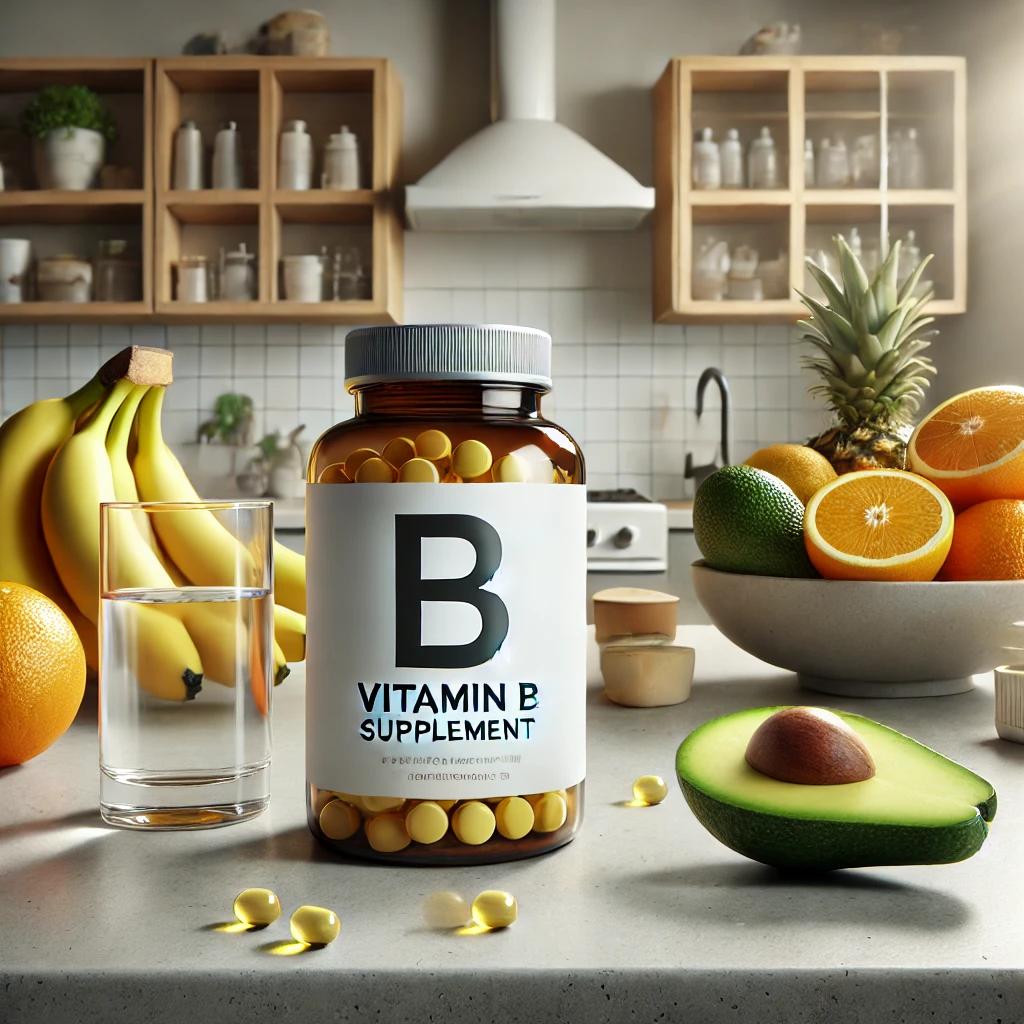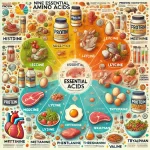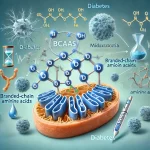Vitamin B is a group of water-soluble vitamins that play a crucial role in maintaining overall health and well-being. This group consists of eight different vitamins, each with specific functions and benefits. In this article, we will explore the effects of Vitamin B, the body’s needs, natural sources, deficiency symptoms, and the best ways to incorporate it into your daily routine.
How Many Vitamin B Types Are There and Why?
There are eight types of Vitamin B, collectively known as the Vitamin B-complex. Each type has unique roles in the body:
- Vitamin B1 (Thiamine): Supports energy production and nerve function.
- Vitamin B2 (Riboflavin): Helps in energy production and skin health.
- Vitamin B3 (Niacin): Supports metabolism, skin health, and the nervous system.
- Vitamin B5 (Pantothenic Acid): Essential for synthesizing coenzyme A, which aids in metabolism.
- Vitamin B6 (Pyridoxine): Involved in amino acid metabolism and neurotransmitter production.
- Vitamin B7 (Biotin): Supports healthy hair, skin, and nails.
- Vitamin B9 (Folate/Folic Acid): Crucial for DNA synthesis and red blood cell formation.
- Vitamin B12 (Cobalamin): Necessary for nerve health, red blood cell production, and DNA synthesis.
The existence of multiple types is due to their varied biochemical roles, all essential for optimal body function.
The Importance of Vitamin B for the Body
Vitamin B-complex vitamins are vital for:
- Energy Production: Convert food into usable energy.
- Brain Health: Support the nervous system and cognitive functions.
- Cellular Function: Aid in DNA synthesis and cell repair.
- Red Blood Cell Formation: Prevent anemia by promoting red blood cell production.
- Healthy Skin and Hair: Enhance skin health and reduce hair loss.
Natural Sources of Vitamin B
Fruits and other foods rich in Vitamin B include:
Fruits Containing Vitamin B:
- Bananas: Rich in Vitamin B6.
- Citrus Fruits: High in Vitamin B9 (Folate).
- Avocados: Contain multiple B vitamins, including B5 and B6.
- Watermelon: Provides B1 and B6.
Other Sources:
- Animal Products: Eggs, milk, fish, and poultry (high in B12 and B2).
- Legumes: Lentils, chickpeas, and beans (rich in B1, B6, and B9).
- Whole Grains: Brown rice, oats, and quinoa (contain B1, B2, and B3).
- Nuts and Seeds: Sunflower seeds and almonds (provide B5 and B7).

Vitamin B Deficiency Symptoms
Deficiency in Vitamin B can lead to:
- Fatigue and Weakness: Due to low energy production.
- Anemia: Caused by inadequate B12 or Folate.
- Skin Disorders: Dryness, cracking, and dermatitis from B2 or B3 deficiency.
- Neurological Issues: Numbness, tingling, and cognitive decline from B1 or B12 deficiency.
- Hair Loss and Brittle Nails: Due to insufficient Biotin.
When Do Doctors Prescribe Vitamin B Injections?
Vitamin B injections are prescribed when:
- Severe Deficiency: Especially for Vitamin B12 due to malabsorption.
- Certain Medical Conditions: Pernicious anemia, Crohn’s disease, or gastric bypass surgery.
- High Demands: During pregnancy, recovery from surgery, or chronic fatigue syndrome.
- Neurological Symptoms: Related to B12 deficiency.
The Need for Vitamin B Supplements and Best Times to Take Them
Who Needs Supplements?
- Vegans and Vegetarians: B12 is primarily found in animal products.
- Pregnant Women: Folate is essential for fetal development.
- Older Adults: Reduced ability to absorb B12 with age.
- People with Medical Conditions: Those with digestive issues or chronic illnesses.
Best Time to Take Vitamin B Supplements
- Morning: B vitamins can boost energy levels and should be taken with breakfast.
- With Food: Enhances absorption and minimizes stomach upset.
Recommended Daily Allowance (RDA) of Vitamin B
The RDA varies by age, sex, and life stage. Below are general guidelines for adults:
- B1 (Thiamine): 1.1–1.2 mg
- B2 (Riboflavin): 1.1–1.3 mg
- B3 (Niacin): 14–16 mg
- B5 (Pantothenic Acid): 5 mg
- B6 (Pyridoxine): 1.3–1.7 mg
- B7 (Biotin): 30 mcg
- B9 (Folate): 400 mcg
- B12 (Cobalamin): 2.4 mcg
Conclusion
Vitamin B is essential for maintaining energy, brain health, and overall well-being. Including a variety of B-rich foods in your diet can help meet your daily needs. Supplements or injections may be necessary in cases of deficiency or specific medical conditions. Consult a healthcare professional to determine the best approach for your unique needs.










